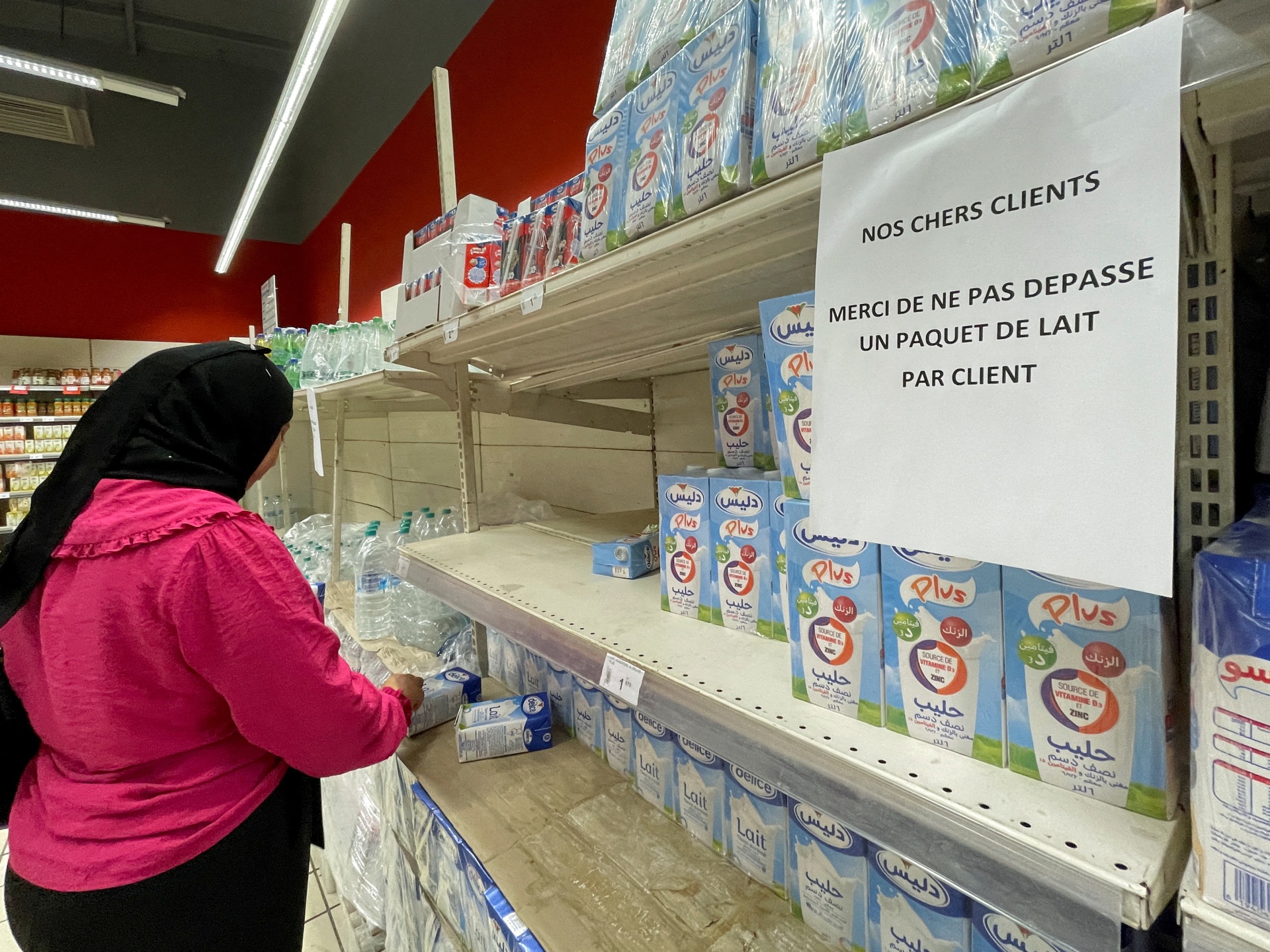Hundreds of demonstrators took to the streets of Tunis in unrest compounded by an ongoing political crisis.
Hundreds of protesters have taken to the streets in the Tunisian capital as soaring inflation and food shortages have compounded unrest amid the country’s ongoing political crisis.
Protesters in the working class Douar Hicher district of the capital Tunis lifted loaves of bread in the air as they took to the streets in anger on Sunday evening.
Some gathered burned tyres, while others chanted, “Where is Kais Saied?”, in reference to Tunisia’s president, who is under pressure as the North African country faces a financial crisis, with inflation running at nearly nine percent and shortages of some food items in stores across the country.
Saied dissolved parliament last year in a move opponents decried as a “coup”.
Frustrated protesters chanted “jobs, freedom and national dignity”, “we can’t support crazy price hikes”, and “where is the sugar?”.
Images on social media showed empty shelves at supermarkets, with videos posted on Sunday showing dozens of customers scrambling for a kilogramme of sugar at a market. Many Tunisians have reported spending hours searching for sugar, milk, butter, cooking oil and rice, among other supplies.
A scene in a Tunisian supermarket as people wrestle for Sugar…
It’s horrible watching scenes like this …#Tunisia#TunisiaDeservesBetter pic.twitter.com/2kphUHGLNI— Souhail Khmira (@SKhmira) September 25, 2022
In the Tunis suburb of Mornag, protesters blocked roads after the suicide death of a young man whose family says had hanged himself after harassment from municipal police.
The seizure of the man’s weighing machine as punishment for selling fruit without permission had echoes of the treatment of Mohamed Bouazizi, a street vendor who set himself on fire in December 2010, sparking the Tunisian revolution.
Riot police eventually fired tear gas to disperse the protesters in Mornag.
So I went to the largest supermarket in the country this morning. This is the poultry section. #thread pic.twitter.com/wIeDASKYBs
— Ahlem Hachicha (@AhlemHC) September 25, 2022
The unrest comes after the government raised the price of cooking gas cylinders by 14 percent earlier this month, the first such price rise in 12 years.
It also raised fuel prices for the fourth time this year as part of a plan to reduce energy subsidies, a policy change sought by the International Monetary Fund, from which the government is scrambling to secure a loan to save public finances from collapse.
The protests come a few months after a string of opposition-led demonstrations against Saied ahead of a July referendum that resulted in the passage of a new constitution which, among other provisions, moves the country to a hyper-presidential system and consolidates power in the president’s hands, with little oversight.
???????? | #URGENT
Les manifestations se multiplient en Tunisie contre les choix du Président Kais Saïed ainsi que du fait des différentes pénuries.???? Douar Hicher, banlieue de Tunis pic.twitter.com/zk34wf9rVv
— Morocco Intelligence (@MoroccoIntel) September 25, 2022
Opponents, who largely boycotted the poll, have questioned the legitimacy of the vote, which came a year after Saied issued an emergency declaration that led to the sacking of the prime minister and the seizure of legislative and judicial powers. He cited corruption among the political elite as justification for the move.
Saied’s actions, which have more recently included issuing an electoral law reducing the role of political parties in parliament ahead of December legislative elections, have been seen as largely cementing a democratic backslide in the country, which was once considered a rare success story of the Arab Spring, a series of pro-democracy movements that swept the region after Tunisia’s success in removing longtime strongman Zine El Abidine Ben Ali.
